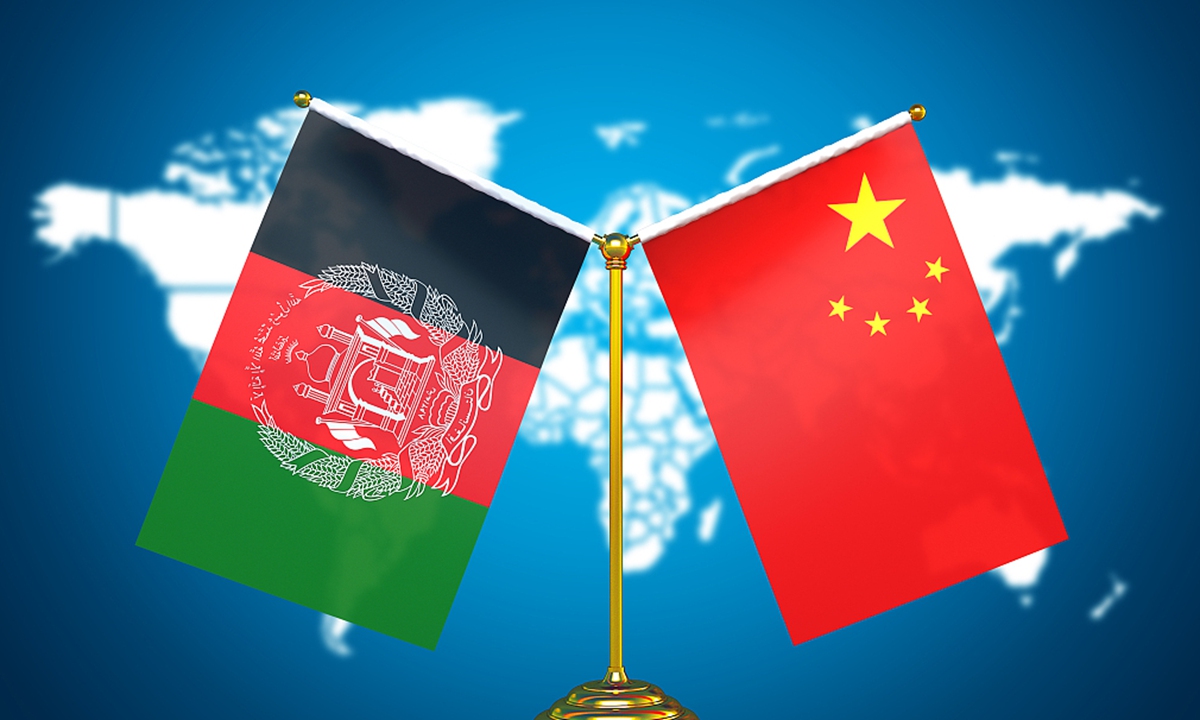We should establish good relations as a result of good interactions and, with good relations, we can solve all the problems that are in front of us or coming in the future.
Zabihulla Mujahid (Taliban’s chief spokesperson)
China has expressed support for the Taliban’s takeover in Afghanistan, indicating its desire to strengthen ties with the new regime in Kabul. This move is seen by China as an opportunity to advance its economic and strategic interests in the region while also balancing against its rival, India.
However, China faces significant challenges and risks in dealing with the Taliban, particularly concerning security, human rights, and regional stability.
China’s Engagement with the Taliban
On the 15th of August 2021, when the Taliban took over Afghanistan, most of the countries closed their diplomatic missions in Kabul. They started to evacuate their citizens out of Afghanistan except China, Pakistan, Russia, and Iran.
China was amongst the first nations to open a diplomatic channel with the Taliban. The former declared that it was ready for “friendly and cooperative” relations with the regime. The groundwork for this decision was laid down much earlier with both sides having met on several occasions, bilaterally and internationally. China’s direct communication over the years with the Taliban and visit of Zhao Sheng, ambassador also underscored the former’s warming ties with the regime. Foreign Minister Amir Khan Muttaqi welcomed the new ambassador and said that the Zhao Sheng’s nomination was a “significant step with a significant message”.

According to Afghan officials the new envoy’s arrival should be seen as a welcoming signal for other nations to come forward and establish relations with the Taliban led government. Zabihullah Mujahid the Taliban’s chief spokesperson said that it was a tradition for new ambassadors to present their credentials to the head of the country and that “it also signals to other countries to come forward and interact with the Islamic Emirate”. An official statement was issued from China’s embassy in Afghanistan which encouraged the international community to maintain its dialogue and encouraged the country to put in place an inclusive political framework, adopt moderate policies, combat “terrorism” and develop friendly relations. It also emphasized on the point for certain countries to “draw lessons” from what happened in Afghanistan and to abandon its double standards on combating “terrorism”. It also asked to return the country’s overseas assets, and lift sanctions.
A Helping Hand: China’s Humanitarian Aid to Taliban

After the withdrawal of US forces from Afghanistan, China was the first foreign country to pledge humanitarian aid worth $ 31 million to Afghanistan. The Taliban regime which at that time was facing a humanitarian catastrophe and economic meltdown, happily welcomed Beijing’s prompt delivery of food and medical supplies. This set the stage for deepening political and economic ties between the two countries. Chinese Foreign Minister Wang-Yi had also made a surprise visit to Afghanistan and met his counterpart in Kabul before his visit to India in March 2022. China also invited the Taliban to send its representative to the Third Foreign Ministers’ Meeting among the neighbouring countries of Afghanistan. This meeting was held in the city of Tunxi on the 31st of March 2022. This was the first time a Taliban official attended this gathering of China, Iran, Pakistan, Russia, Tajikistan, Turkmenistan and Uzbekistan. The last chapter of this dialogue was hosted in Islamabad in September 2021, which was right after the Taliban took control of the Ashraf Ghani regime.
China’s Interests in Afghanistan
China’s strategy in Afghanistan is based on two main interests – security and economics.
On the security front, China faces threats from certain groups it has branded as terrorist organizations and which are believed to be operating from Afghan territory. Beijing’s primary concern is to curb any regional instability and eliminate any possibility for Afghanistan to provide a breeding ground for terrorist groups, especially the Uyghur militants in the country. Beijing would closely observe the Taliban’s relationship with the East Turkmenistan Islamic Movement (ETIM). It is a Uyghur group that China blames for unrest in its western Xinjiang Province.
Economic Interests and Belt & Road Initiatives
China’s economic interests in Afghanistan mainly circle around its significant investments in the mining sector. This includes the Mes Aynak copper mine and the oil extraction contract in the Northern provinces of Farvab and Sar-e-Pol. Both these projects were on hold for years because of the volatile situation in the country. Reportedly, dozens of Chinese mining companies have reached Kabul seeking contracts for other mines. China’s Belt and Road Initiative Projects also evade Afghan territory. CPEC is a Belt and Road Flagship project of $60 billion that links China’s western Xinjiang region to Pakistan’s strategic Gwadar port on the Arabian Sea with a network of roads, railways, pipelines and power plants.
The Global Consequences of China’s Friendship with Taliban
China’s alliance with the Taliban holds immense global implications for various stakeholders and concerns. There are several significant outcomes resulting from this collaboration:-
- India – China’s alliance with the Taliban poses a significant challenge to India’s interests and influence in Afghanistan. Over the span of several decades, India has played a crucial role as a generous benefactor and partner, actively supporting Afghanistan’s development, democracy, and overall stability. Moreover, India has diligently fostered relationships with multiple Afghan factions, even those at odds with or marginalized by the Taliban. The primary concern for India lies in the potential establishment of a Taliban led Afghanistan that could serve as a safe haven for anti-India terrorist organizations such as Lashkar-e-Taiba (LeT) and Jaish-e-Mohammed (JeM) groups known to receive support from Pakistan. Additionally, there is apprehension over China utilizing its influence over the Taliban to undermine India’s presence and contributions within Afghanistan.
- Pakistan – China’s alliance with the Taliban has the potential to greatly benefit Pakistan’s interests and influence in Afghanistan and the surrounding region. For years, Pakistan has stood as a staunch supporter and strategic partner of the Taliban, offering them shelter, training, finances and diplomatic backing. From Pakistan’s perspective the Taliban represents a valuable asset that can effectively counteract India’s sway while safe guarding its own concerns within Afghanistan. Moreover, Pakistan holds hope that through China’s leverage over the Taliban, they can foster cooperation on vital security and economic matters for mutual gain.
- US – China’s friendship with Taliban could be a setback for the US’s interests and influence in Afghanistan and the region. The US has invested trillions of dollars and thousands of lives in Afghanistan since 2001, aiming to defeat the Taliban, eliminate Al-Qaeda, and build a stable and democratic state. The US withdrew its troops from Afghanistan in 2021, ending its longest war, but also leaving behind a chaotic and uncertain situation. The US fears that a Taliban led Afghanistan could become a breeding ground for terrorism and extremism that could threaten the US and its allies. The US also worries that China could exploit the power vacuum in Afghanistan to expand its influence and challenge the US’s role and presence in the region.
- Human Rights – China’s alliance with the Taliban poses a significant threat to human rights in Afghanistan and the surrounding region. With a track record of poor respect for human rights, particularly concerning ethnic and religious minorities like the Uyghurs in Xinjiang, China has faced allegations of committing acts of genocide, crimes against humanity and other atrocities against this population. These include mass detention, torture, surveillance, forced labor, and even sterilization. China’s friendly ties with the Taliban provide them with an opportunity to overlook or justify their human rights abuses while simultaneously discouraging or obstructing international scrutiny or pressure on these matters.
- Regional Stability – China’s friendship with the Taliban holds significant implications for regional stability in Afghanistan and the surrounding region. On one hand, their relationship can contribute to stability by fostering economic opportunities, providing much needed humanitarian aid and granting diplomatic recognition to Afghanistan. Additionally, China could play a constructive role in promoting dialogue and cooperation among key regional players like Pakistan, Iran, Russia, Turkey, and Central Asian states. However, on the other hand, this alliance may also exacerbate existing conflicts and rivalries among regional actors such as India, US, and their allies. Moreover, China might encounter security challenges from extremist groups or separatist movements either operating from or targeting Afghanistan.
China’s deepening friendship with the Taliban is a multifaceted and ever evolving phenomenon, carrying potential implications for numerous actors and issues. The nature of China’s association with the Taliban holds prospects of both benefits and risks for both parties involved, contingent upon their ability to manage their relationship effectively and address shared challenges. Consequently, this growing friendship between China and Taliban demands close attention from all stakeholders.

